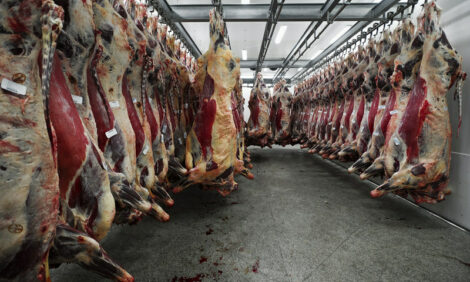



Canada Amends Bluetongue Status
CANADA - The Canadian Food Inspection Agency (CFIA) has amended the Reportable Diseases Regulations and the Health of Animals Regulations to change the status of five types of bluetongue, from "federally reportable" to "immediately notifiable."There is no human health or food safety risk associated with bluetongue. It affects domestic and wild ruminants, and is only transmitted by insects known as biting midges. In Canada, biting midges are only present in British Columbia's Okanagan Valley, as well as in the southern parts of Manitoba, Saskatchewan and Alberta, where they have a limited ability to survive and spread bluetongue.
Bluetongue types 2,10,11,13 and 17—all of which are considered endemic in the United States—are now listed as immediately notifiable diseases in Canada. The change in disease status reflects the highly integrated nature of the Canadian and American livestock markets. All remaining types of bluetongue, exotic to the US, are still listed as federally reportable diseases.
,br> The changes were developed in consultation with a range of stakeholders, including livestock industry groups and provincial governments. The changes are based in science, and do not affect Canada's international reporting obligations to trading partners and the World Organisation for Animal Health (OIE).
All suspected or confirmed cases of federally reportable diseases must be reported to the CFIA, which immediately applies control measures. In general, there are no response programs for immediately notifiable diseases; however, laboratories are required to report confirmed diagnoses to the CFIA. This enables prevalence verification and supports international reporting and certification requirements.
Copies of the amendment are also available on the CFIA website, at www.inspection.gc.ca.
TheCattleSite News Desk


